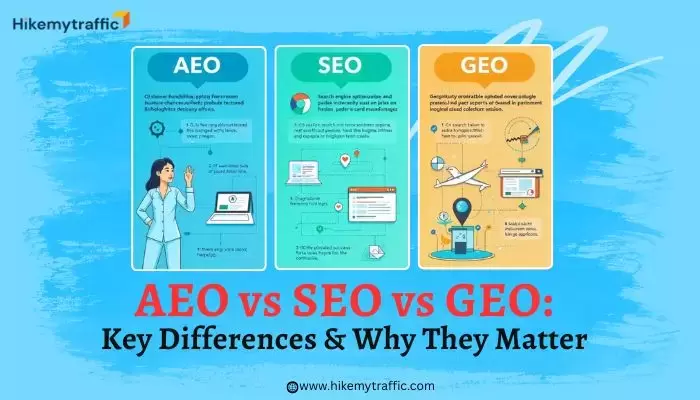Absolute Links vs. Relative Links - Important in SEO
When building or managing a website, especially with SEO in mind, one topic that often comes up is the use of absolute links vs. relative links. While these terms might sound technical, understanding them is essential for ensuring that your website is optimized for both users and search engines. -1744708492.png)
In this article, we’ll dive into the differences between absolute links and relative links, their impact on SEO, and how a reliable SEO service can help you make the best choices for your site.
What Are Absolute Links?
Absolute links, also known as absolute URLs, include the full path to a specific page or resource on the internet. This means they contain the entire URL, including the protocol (http or https), domain name, and the specific page or file location.For example: absolute-links-vs-relative-links-seo-value/. This type of link points directly to a location regardless of where it is placed on the site. It is precise and always directs users and search engines to the same resource, no matter where the link is used.
What Are Relative Links?
Relative links, in contrast, provide a path based on the location of the current page. These links do not include the domain name or protocol, relying instead on the browser to understand the location based on the context of the current page.For example: /blog/seo-basics or blog/seo-basics. Relative links are shorter and more convenient for internal linking within the same website. They make it easier to move a site from one domain to another without rewriting every internal link.
Absolute Links vs. Relative Links – Which One is Better for SEO?
The debate of absolute links vs. relative links often centers around SEO value and security. Search engines like Google can crawl both types effectively, but there are subtle differences in how they impact your website's SEO performance.Absolute links provide consistency and clarity to search engines. When search bots crawl your site, absolute URLs help avoid confusion and reduce the risk of duplicate content or canonical issues. This can improve crawl efficiency and contribute positively to your SEO health.
On the other hand, relative links are useful in development environments and when managing internal pages. However, they may cause problems when your content is syndicated, copied, or accessed from different domains. In such cases, relative links might lead to broken pages or misdirected traffic.
For businesses serious about ranking well on search engines, relying on absolute links for external linking and critical internal pages is a safer and more SEO-friendly approach.
How Absolute Links and Relative Links Affect Website Migration
Website migration is a common scenario where the choice between absolute links and relative links becomes critical. During migration, maintaining link structure and preventing broken links is key to retaining SEO value.
Relative links are easier to manage during a domain shift because they do not reference a specific domain. However, this convenience can turn into a disadvantage if the relative paths are incorrect or if the site structure changes.
Absolute links require more effort during migration, but ensure that each link points to a specific, complete URL. This can be beneficial when preserving your site’s authority and avoiding content duplication.
A professional SEO service can guide you through this process, making sure your internal link structure supports your SEO goals during and after migration.
Link Canonicalization and Duplicate Content
Another aspect to consider in the absolute links vs. relative links discussion is canonicalization. Canonical tags are used to tell search engines which version of a page is the primary one, especially when similar content exists at multiple URLs.
Using absolute links in canonical tags is generally recommended to avoid any ambiguity. This helps search engines correctly index and rank your pages without mistaking them for duplicates. Relying on relative URLs in canonical tags can sometimes lead to unexpected results and poor SEO performance.
Duplicate content can dilute your page authority and confuse search engines, which may choose the wrong version to rank. Proper canonicalization with absolute links ensures that link equity is consolidated to the correct page, boosting its visibility in search results.
In any solid SEO service, auditing canonical tags and ensuring the right use of absolute URLs is a key step in maintaining a healthy website SEO profile.
Security and Absolute Links
When it comes to securing your site and protecting against phishing attacks or content hijacking, absolute links offer a more reliable solution. Because they specify the full path, they reduce the chances of a page being exploited through URL manipulation. Many SEO professionals and developers agree that using absolute URLs, particularly in navigation and canonical tags, enhances a site’s trustworthiness and technical integrity.The Role of SEO Services in Optimizing Link Structures
Choosing between absolute links and relative links may seem like a minor technical decision, but it can significantly affect your website’s SEO health. Whether you are launching a new website, planning a migration, or just optimizing your on-page SEO, having the right link strategy is essential.SEO services play a vital role in analyzing, managing, and optimizing a website’s internal and external link structure. They ensure that links, whether absolute or relative, are used strategically to enhance crawlability, avoid duplicate content issues, and improve user experience.
A professional SEO service will audit all links across the site, fix broken or misdirected URLs, implement proper canonical tags using absolute links, and create a logical linking hierarchy. They also ensure that anchor texts are relevant, descriptive, and contribute to a better understanding of site architecture by both users and search engines.
Ultimately, with the help of SEO experts, businesses can establish a strong link structure that supports higher search rankings, faster indexing, and stronger domain authority.
Final Thoughts
In conclusion, the choice between absolute links vs. relative links depends on your website’s structure, goals, and SEO strategy. Absolute links are often favored for their clarity, consistency, and better handling of SEO-related issues like canonicalization and external linking. Relative links are useful in certain internal scenarios but require careful management.If you’re unsure which approach is best for your site, partnering with a trusted SEO service can ensure your link structure supports long-term growth and improved search engine visibility. Understanding and implementing the right type of links is a small but powerful step toward SEO success.
FAQs
Here are some of the most frequently asked questions-
Absolute links contain the full URL, including the protocol and domain name, while relative links only include the path from the current page’s location.
Yes, absolute links are generally better for SEO because they reduce confusion for search engines, prevent duplicate content issues, and provide more stability during content sharing.
Yes, search engines like Google can crawl both absolute and relative links effectively. However, absolute links provide more clarity to search engine crawlers by specifying the full URL, including the domain and protocol.
Yes, absolute links can help improve site security by reducing the chances of URL manipulation or hijacking, especially in navigation and canonical tags.
Absolutely. Using full, absolute URLs in canonical tags is the recommended best practice to avoid confusion and ensure proper indexing.
Share:
Let’s Design Your New Website
Do you want to have a website that stands out and impresses your clients? Then we are ready to help! Click the button below to contact us and discuss your ideas.







Goutam Singh